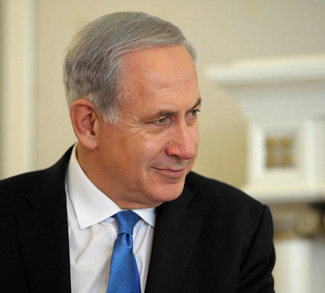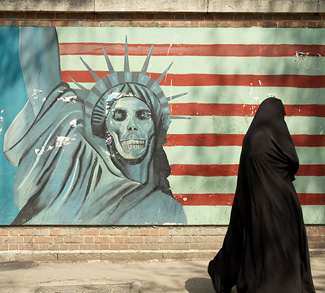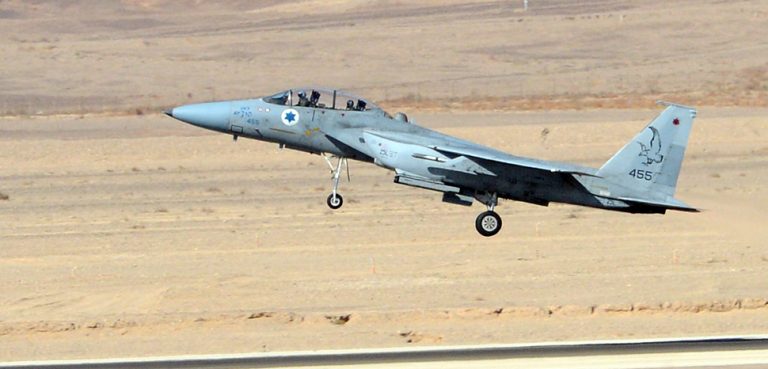This is part of a series of editorials exploring the far-ranging impacts of the Iran nuclear deal. It was written in response to “A New Balance of Power in the Middle East,” which was published on July 20.
A New Balance of Power in the Middle East projects two core outcomes of the Iran nuclear deal that require closer examination. Both projections at first seem reasonable, even probable, if viewed as isolated concepts…. then less so in a holistic context.
The first is that the deal is a harbinger of a prospective era of cooperation between Iran and the West. In this scenario, Iran resumes a leadership role in the Arab world that was interrupted by the Islamic Revolution and the subsequent drive to militarization. The idea is that once sanctions are ended, the Iranian economy recovers, the people prosper, and the regime’s hostile animus fades.
There is a conceptual logic to this supported by historical example. As opposed to a repeat of the Treaty of Versailles after the defeat of the Nazis, the Allies learned a lesson and invoked the Marshall Plan to rehabilitate Germany after World War II. Soon, Germany became a bulwark to Russian expansion in a reversal of roles from just several years prior.
The problem, however, is that the analogy doesn’t fit here. Far from defeated, Iran considers itself the victor in the deal. The regime is left intact; it perceives itself strengthened by the deal. The ideology of Khomeini is unchanged and undiminished. Indeed, as soon as the deal was announced Tehran reaffirmed its contempt for the West in general and for America and Israel in particular.
Some might consider this bluster to cover concessions, but surely it merits mention. If this factor is not at least mapped as a hurdle to overcome, students of history should not walk the path with confidence.
An even more visceral challenge to Iran’s reintegration and rise to a position of regional leadership is the fact that Iran never did nor never could lead the Arab world. Iranians are Persians, not Arabs. This is an uncomfortable assertion for those who think the ethno-national state and tribalism are legacy concepts as opposed to the fundamental drivers of international relations.
The last time the United States and Iran were in close alignment was at the height of the Cold War. The Shah allied with Washington in an effort to contain Communism. Iraq, Syria, and the natural leader of the Arab world – Egypt – all flirted with Arab socialism (Ba’athism) and invited Russian influence. Moscow enjoyed unprecedented arms sales and established itself at strategic chokepoints along the Suez Canal and the Syrian warm-water port of Tartus.
US influence in the region remained peripheral and limited to Iran until Egypt “defected” from the Russian camp in the Camp David process. Despite initial dismay, most of the rest of the Arab world drifted into American orbit. Even Syria established a “No War, No Peace” dénouement with Israel. Egypt is the largest Arab country with the most powerful military. It straddles three continents, controls the Nile, Suez Canal, and the Red Sea. Egypt remains a strategic prize, even in turmoil.
Despite a natural conflict with Israel, the Egyptians, Saudis, and Jordanians recognized that Pax Americana secured their borders. Israel had become a conservative power, with no further territorial ambitions. More to the point Israel – by definition an alien culture – represented no challenge to Egypt’s leadership in the Arab world. Iran’s attempts to export the Islamic Shia Revolution in a bid for regional hegemony constituted a fundamental threat to Sunni control of Mecca and Medina, and to the secular pan-Arabism of Sadat and Mubarak.
In this regard, all the upheaval of the Arab Spring changed little. After a brief flirtation with fundamentalism, Egyptians rallied to the army to provide bread and order. Again, much of the Arab world followed. Turkish attempts to claim the Arab Spring were rejected as foreign, with Iranian feints to press for cultural leadership half-hearted at best. Iran contented itself to retain influence within the Shia belts in Iraq, Alawite Syria and Hezbollah’s Lebanon. The latter, while too clever to become Tehran’s proxy, emerged as a long and sharp stick to poke at Israel from a safe distance, if it was needed to distract the people from economic hardship and political repression at home. At the moment, Iran and Hezbollah have their hands full of Sunni revolt in Syria. It is not in their interest to prod Israel so long as Israel continues to accept the prospect of Assad’s rule in Damascus.
President Obama’s quick exit from Iraq, his failure to outmaneuver Putin over Syrian chemical weapons and – above all – his dismissal of Mubarak, endorsement of Morsi, then coolness with al-Sisi forced the Saudis, Egyptians, and Jordanians into a closer knot.
A New Balance of Power in the Middle East notes this development and is aware of the paradox of a close if covert Israeli role in this alignment.
At the root of this convergence is a mutual interest to stem Iranian influence.
This is why the first tenet of A New Balance of Power in the Middle East seems unattainable. The Iranian nuclear deal will not increase Tehran’s leadership in the region nor allow Washington to develop and leverage a multi-dimensional partnership to promote US interests. In short, diluted Islamic fervor might facilitate Western-Iranian cooperation, but it isn’t Khomeini per se that unnerves the Arabs. It is the ambitions of an ethnically Persian Shia empire that troubles them.
Indeed, it seems that President Obama himself has a much less of a “transformational” objective in the deal. Apart from the inherent goal to slow nuclear proliferation, Obama’s actions indicate a realpolitik motivation (hitherto not in evidence) to leverage Iran’s natural aversion to the ISIL threat.
A good panoramic view of this landscape is a suitable point of departure to examine the second tenet of A New Balance of Power in the Middle East.
It is simple to conclude that Israel is the “biggest loser” here. Friends and foes of Israel manage to agree on this one point. The prime minister of the country is adamant that the deal is a fundamental threat to Israel’s existence.
Again, Obama seems to have the better grasp of a realpolitik logic that has eluded him hitherto in the Middle East (and elsewhere in Ukraine, for example). In defense of the deal against Netanyahu’s challenges, Obama asserts that no alternative was advanced nor apparent from other quarters. Netanyahu conflates the fact that sanctions and the threat of war stung Iran with the idea that such a sting actually prevented Iranian bomb progress. It did not. Indeed, Netanyahu raised the alarm many times that Iran’s march to nuclear weapons quickened even under sanctions. The cold and sober truth is that the deal represents the art of the possible, with what must be conceded is an endeavor to contain a technology which is as old as a rotary telephone.
Israel maintained (and retains) a view to a surgical strike. The logistics, however, are not favorable. The lessons of Israel’s successful raids on Iraqi and Syrian nuclear facilities are not lost in Iran. Nuclear components are more distributed, better defended, deeper underground, and further from IAF bases.
The negotiated depletion of Iran’s plutonium stocks and enrichment-level capabilities – even for 10 years under an imperfect inspection regime – is still a respectable achievement.
Israel risks diplomatic capital with its continued efforts to fight a done deal. Instead, Jerusalem needs to focus on the verification regime, securing compensatory American weapons systems, and enhancing Israel’s own nuclear deterrent delivery system and ABM capabilities.
Of course, Israel has much to fear from a nuclear Iran, but there is no objective evidence that sanctions and the threat of war has curbed Iran’s ambitions. The deal at least offers a framework for nuclear controls. It also has the potential to moderate Iran’s appetite and need for hostile rhetoric and behavior if the Iranian people benefit from the deal. Again, the Iranian people are Persians, at considerable geographical distance from Israel, with no real historical animus towards Israel.
A New Balance of Power in the Middle East however develops another projection for Israel from the agreement. The concept is that the deal clears obstacles for Obama to press for a solution to the Palestinian question. In this scenario, Israel and its allies can no longer cite a clear and imminent threat from Iran as a risk that prohibits concessions. True, there is little doubt that Obama is an active proponent of the two-state solution, and that the Iran nuclear deal comes at the right time to build on European efforts where the president himself has no further electoral concerns.
For Israel – or at least the present revisionist government in Jerusalem – this confluence of factors may indeed pose a challenge, no doubt aggravated by the mistrust of the US president’s intentions. If this is Obama’s objective, he has yet to tip his hand or even hint at “linkage” between a mollified Iran and a new push for a Palestinian state. It seems more the case that Obama’s support for a Palestinian state is rooted in his Democratic Party’s Wilsonian traditions in favor of national self-determination as opposed to his new realpolitik. A realist view, moreover, returns to the first point in this rejoinder. There isn’t much capital to leverage from the Iranian deal in support of Palestine. Serious overture from the Arab world towards Israel includes no role for Iran. Iran’s influence in prospective negotiations is limited to that of spoiler. Iran can ramp up Hamas and other rejectionist elements. The best Obama could hope for in this respect, therefore, is for Iran not to meddle.
In this light, it is difficult to see a realignment and a ‘new balance of power.’ To repeat, the Iranian regime has not discarded the Islamic Revolution. Even if Tehran modifies here and there and gains Western confidence, the Arab world will never accept Persian leadership. As for Israel, the deal will be less problematic for Israel once the Netanyahu government accepts the idea to work to ensure the deal is honored and that Israel attains deterrent compensation. The deal appears disastrous for Israel as Netanyahu continues to declare it so. As for Israel and the Palestinians, a diplomatic push may find some momentum after Obama demonstrated he can negotiate to some conclusion. It is doubtful that the West can enlist Iran here in a positive role. The Arabs won’t accept it. Israel, of course, will have none of it. As Turkey learned, the drive to regional leadership for non-Arab hopefuls stalls if the fuel is just anti-Israel rhetoric. The Arabs don’t buy the door-to-door sales pitch. The Israelis, meantime, stomped on the diplomatic foothold Erdogan’s predecessors had nurtured before Erdogan used it to deliver a kick. In any calculus of prospective outcomes in the Middle East, Israel’s determination to defend its red lines – at whatever cost – is overlooked at considerable peril. Moreover, Iran has yet to miss a chance to remind the world that the deal does not ease Iran’s hostility towards Israel’s existence. Turkish rhetoric and intrigue, by contrast, is self-restrained within a frayed diplomatic recognition of Israel. Should Obama manage to secure Iranian self-restraint in a negotiations period, that would amount to a significant change in behavior for which Obama could take legitimate credit. Such an achievement, however, is an almost irrelevant factor in the myriad of obstacles in the way of an Israeli-Palestinian agreement.
As Sadat recognized years ago when he ejected the Russians, the road to Jerusalem is through Washington (and via a direct flight to Jerusalem itself). America is still the sole actor with the clout to move Israel. In turn, Washington knows that its clout with Israel stems from more than arms sales and a diplomatic veto in the UN. Israel recognizes US power and accords such power a level of influence commensurate with a fundamental trust of shared interests and values. This nuance seems obvious if one considers that Russian power once rivalled US power in the Middle East and may do so again. The Russians, however, had and continue to have little influence over Israel, apart from a constraint. On the trust scale, Obama is not the confidant to Netanyahu that Bush Junior, Clinton, or Reagan was to their respective Israeli counterparts. In Israeli eyes, Obama is Jimmy Carter with John Kerry much like Bush Senior’s James Baker. Carter was liked but not trusted. Baker was respected with core trusts intact, but not liked. It is a Machiavellian world: “Better to be respected and trusted than liked,” or so Princes are advised.
Some maintain that present strains represent divergent interests and portend the “reassessment” required to force Israel’s hand. That remains to be seen and is a matter of psychological conjecture. What does seem clear is that if Obama determines a push is in order the power behind it must be gauged to generate forward movement and not trigger a backlash. It is a delicate balance. Obama may or may not have the determination and skills for this. That, too, is conjecture. What is not conjecture, however, is that even a remote hint from Obama to leverage capital from the Iran nuclear deal to move Israel is certain to raise alarm bells in Israel and evoke a Masada mindset.
In a word, there is no conceivable derivative diplomatic benefit to the Palestinian question from the Iranian deal unless Obama can deliver Khamenei and Rouhani to Jerusalem, each with a dozen roses.




